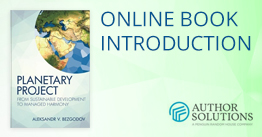The concept of anthropo-socio-ecology and modern urban information environment ecologising

19/10/2015
The modern world faces the threat of a global environmental catastrophe from two causes. Firstly, from the consumer society economic system whose exploitative nature is characterised by industrial technologies, which are hazardous and inefficient from the point of view of resource management. Secondly, from the destructive mentality that guides the actions of the agent of modern history. Systemic analysis of the problem convincingly substantiates this point. The contemporary humanities and the arts, an interdisciplinary symbiosis of sciences, and public opinion are forming a comprehensive concept of an environmental crisis. This includes: not only threats of destruction of nature, the animal world and the planet’s natural resources; but also a combination of specific social, moral-ethical, psychological, communication and information issues, united under the name of human ecology or social ecology.
Anthropo-socio-ecology studies the contemporary human living environment. This includes various parameters and characteristics: social, statistical, geophysical, technological, demographic and psychological. Anthropo-socio-ecology is an integral synthetic scientific and socio-cultural paradigm of modern man, which treats man as a crisis creature and an endangered species by pointing out its substantial, often irreversible, changes in human nature and human habitat.
A concrete example of an anthropo-social problem is the ecology of information environment, best manifested in the context of a modern metropolis. The significance of the information space can hardly be overestimated: it is a ubiquitous medium for any human activity. It is not unusual therefore that modern civilisation bears the name of information civilisation. The growth of and ubiquity of the global information space results from: the universal historical trends of world development and diverse processes of scientific-technical improvement; the breaking up of archaic forms and the emergence of a new socio-cultural form of human co-existence; and changes in mass consciousness and individual psychology.
The growing social role of the information space is, thus, an objective process. Nevertheless, by virtue of being a common manifestation of economic, political and cultural activity and a universal carrier of various meanings of public, group and individual consciousness, the information space cannot stay indifferent in its content and unchanging in its structure. The information environment does not only become involved in the competition between different social forces, but also it starts to generate competition strategies and conflict scenarios.
Initially, the information environment fulfilled communication reproduction and mediation. Now, independently and uncontrolled, it is starting to generate new communication types and models, often expansive and aggressive ones, and new types of mediation: technical, semiotic, image-artistic and psycholinguistic. Thus, the information environment cannot be unconditionally evaluated as a progressive factor of social development, because it includes many negative aspects that present a real threat to a person’s psychological security and their personal rights. Destructive elements of the information environment include devaluing and breaking traditional human communication patterns in public consciousness, commercialising art, manipulating public opinion by the ruling elites through mass media, popularizing and aestheticising violence, advertising and propagandistic zombieing, spreading mass illusions, invoking archetypal phobias, generating social (e.g., consumer or “crisis”) hysteria, and other pathogenic mental conditions both at the individual and mass levels.
Ecologising the information environment does not imply affecting information agents; this influence would be political, administrative and legal, which narrows down the problem and takes us away from its origins and real reasons. This issue should be put in a broader sense: this information space, its structuring principles, mass communication mechanisms, images and information carriers etc. are dictated by the logic of the model "information - technology - market". We must examine the process of the information space transforming from a passive signifier into the sphere of "subjectless intersubjectivity", which produces socially significant meanings and stimuli, and sending them to uncontrolled and unguided circulation. At the last stage, mechanisms of psychotropic impact of the information environment on humans should be identified and analysed, especially as consumers of advertising and media services and as a voter. The principles of their correction should be formulated based on the requirements of personal psychological security and legal norms. Thus, modern urban information environment ecology calls for interdisciplinary research in terms of content, values and stereotypes of public consciousness and social and scientific-technical activity.









